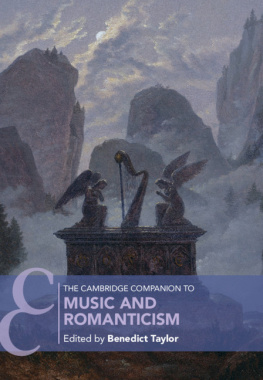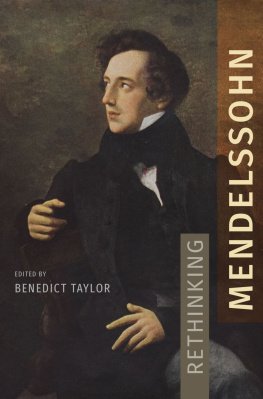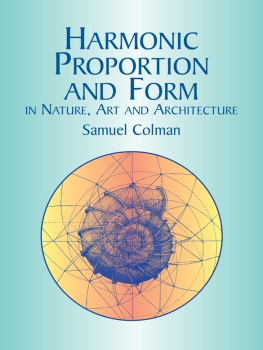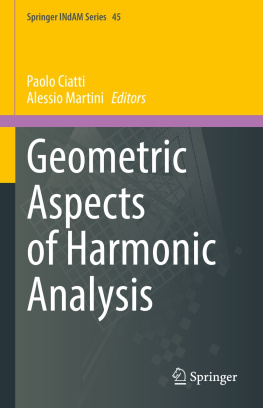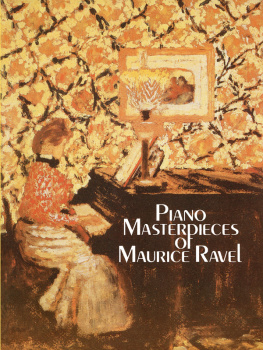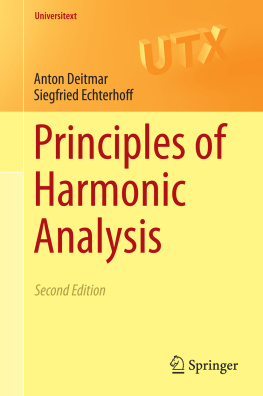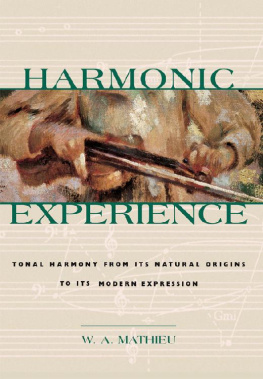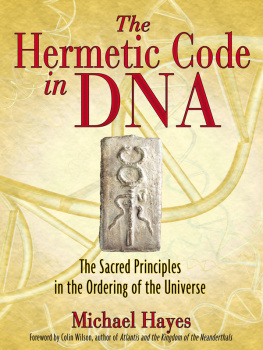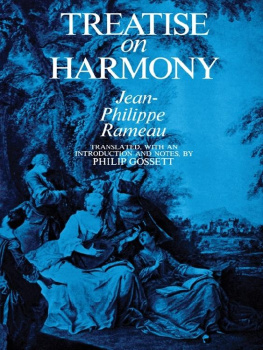Contents
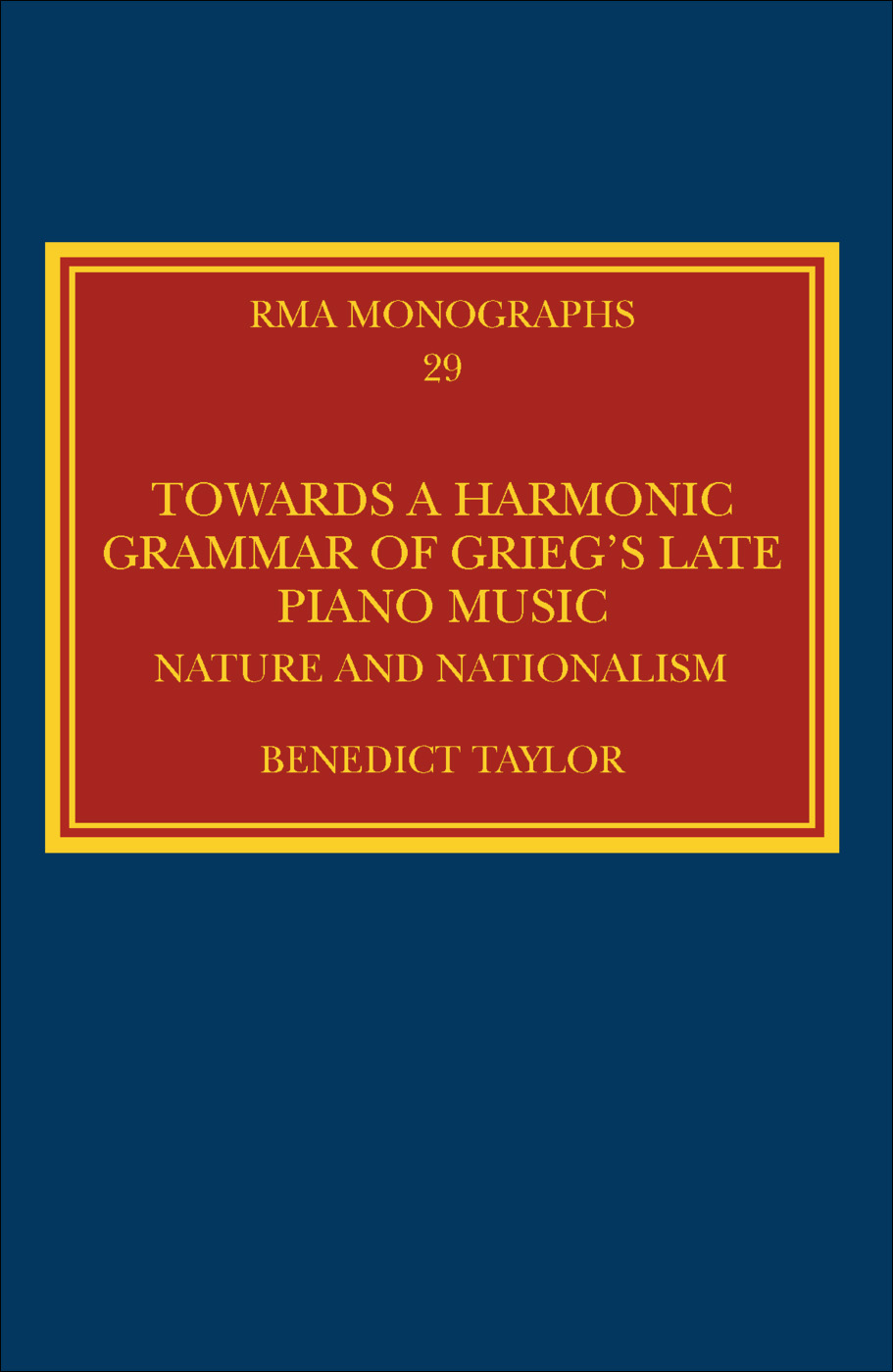
Towards a Harmonic Grammar of Griegs Late Piano Music
The music of Edvard Grieg is justly celebrated for its harmonic richness, a feature especially apparent in the piano works written in the last decades of his life. Grieg was enchanted by what he styled the dreamworld of harmony, a magical realm whose principles the composer felt remained a mystery even to himself, and he was not alone, in that the complex nature of late-Romantic harmony around 1900 has proved a keen source of debate up to the present day. Griegs music forms a particularly profitable repertoire for focusing current debates about the nature of tonality and tonal harmony. Departing from earlier approaches, this study is not simply an inventory of Griegian harmonic traits but seeks rather to ascertain the deeper principles at work governing their meaningful conjunction, how elements of Griegs harmonic grammar are utilised in creating an extended tonal syntax. Building both on historical theories and more recent developments, Benedict Taylor develops new models for understanding the complexity of late-Romantic tonal practice as epitomised in Griegs music. Such an investigation casts further valuable light on the twin issues of nature and nationalism long connected with the composer: the question of tonality as something natural or culturally constructed and larger historiographical claims concerning Griegs apparent position on the periphery of the Austro-German tradition.
Benedict Taylor is Chancellors Fellow in the Reid School of Music, University of Edinburgh. He is the author of Mendelssohn, Time and Memory: The Romantic Conception of Cyclic Form (Cambridge, 2011) and The Melody of Time: Music and Temporality in the Romantic Era, (Oxford, 2016).
ROYAL MUSICAL ASSOCIATION MONOGRAPHS
General Editor: Simon P. Keefe
This series is supported by funds made available to the Royal Musical Association from the estate of Thurston Dart, former King Edward Professor of Music at the University of London. The editorial board is the Publications Committee of the Association.
Recent monographs in the series (for a full list, see the end of this book):
Skryabin, Philosophy and the Music of Desire (2012)
Kenneth M. Smith
The politics of plainchant in fin-de-sicle France (2013)
Katharine Ellis
Brahms Beyond Mastery: His Sarabande and Gavotte, and its Recompositions (2013)
Robert Pascall
Regina Mingotti: Diva and Impresario at the Kings Theatre, London (2013)
Michael Burden
Heinrich Schenker and Beethovens Hammerklavier Sonata (2013)
Nicholas Marston
The Politics of Verdis Cantica (2014)
Roberta Montemorra Marvin
Johann Matthesons Pices de clavecin and Das neu-erffnete Orchestre (2014)
Margaret Seares
Singing Dante: The Literary Origins of Cinquecento Monody (2014)
Elena Abramov-van Rijk
The Ars musica Attributed to Magister Lambertus/Aristoteles (2015)
Christian Meyer, editor and Karen Desmond, translator
Magister Jacobus de Ispania, author of the Speculum musicae (2015)
Margaret Bent
Towards a Harmonic Grammar of Griegs Late Piano Music (2016)
Benedict Taylor
The Genesis and Development of an English Organ Sonata (2016)
Iain Quinn
Towards a Harmonic Grammar of Griegs Late Piano Music
Nature and Nationalism
BENEDICT TAYLOR

First published 2017
by Routledge
2 Park Square, Milton Park, Abingdon, Oxon OX14 4RN
and by Routledge
711 Third Avenue, New York, NY 10017
Routledge is an imprint of the Taylor & Francis Group, an informa business
2017 Benedict Taylor
The right of Benedict Taylor to be identified as author of this work has been asserted by him in accordance with sections 77 and 78 of the Copyright, Designs and Patents Act 1988.
All rights reserved. No part of this book may be reprinted or reproduced or utilised in any form or by any electronic, mechanical, or other means, now known or hereafter invented, including photocopying and recording, or in any information storage or retrieval system, without permission in writing from the publishers.
Trademark notice: Product or corporate names may be trademarks or registered trademarks, and are used only for identification and explanation without intent to infringe.
British Library Cataloguing-in-Publication Data
A catalogue record for this book is available from the British Library
Library of Congress Cataloging-in-Publication Data
Names: Taylor, Benedict, 1981
Title: Towards a harmonic grammar of Griegs late piano music: nature and nationalism / Benedict Taylor.
Description: Abingdon, Oxon; New York, NY: Routledge, 2016. | Includes bibliographical references and index.
Identifiers: LCCN 2016035300| ISBN 9781472456588 (hardback: alk. paper) | ISBN 9781315307350 (ebook)
Subjects: LCSH: Grieg, Edvard, 1843-1907. Piano music. | Grieg, Edvard, 1843-1907Harmony. | Piano music19th centuryAnalysis, apperciation.
Classification: LCC ML410.G9 T39 2016 | DDC 786.2092dc23
LC record available at https://lccn.loc.gov/2016035300
ISBN: 978-1-4724-5658-8 (hbk)
ISBN: 978-1-315-30735-0 (ebk)
Typeset in Palatino Linotype
by codeMantra
* * *
It was the work of Edvard Grieg that first drew me towards music many years ago, and thus writing this book was in many ways a return to a first love, one that had not dimmed in the interim. I may have grown out of the tendency to compose music consisting almost solely of interminably slipping chromatic harmonies, but my desire to understand why Griegs worked, whereas mine never did, was a guiding stimulus behind this study. Like Grieg, I am still baffled by the dreamworld of harmony, but I hope that a few pointers have been set out here within this mysterious terrain, ones which may elucidate aspects of Griegs music just as they might being hopelessly optimistic suggest further possible courses for compositional endeavours.
Although it had long been on my mind to write a study of Grieg, this project was finally made possible by a Mellon Postdoctoral Fellowship at the University of Oxford in 201213 and written during the unusually wintery month of March 2013, and I would especially like to thank Daniel Grimley, Jonathan Cross and Eric Clarke for supporting this fellowship. In particular, Dan has been a constant inspiration through his pioneering work on Grieg and Scandinavian music and an ever-helpful colleague whose knowledge of this repertoire is seemingly endless. The present account has benefited immeasurably from his input. Several years before at Princeton, Dmitri Tymoczko had stimulated several of the theoretical lines of inquiry found here, besides being admirably curious to explore this often-overlooked repertoire, and gave kind feedback on the draft of this book. Going even further back, Dean Sutcliffe, my undergraduate director of studies, first revealed how much there was to say about Griegs music with his now legendary analysis supervision on Klokkeklang (I now in turn have inflicted this piece on a future generation of undergraduates, though without the same skill or exacting precision as Dean). To my brother Nathaniel and his family I owe thanks for helping make some sense of some of the more obscure Norwegian dialects I encountered along the way, and perhaps even more importantly, shared memories of a distant trip to Norway in which the Hardangerfjord, Bergen and Troldhaugen were encountered in a miraculous June sunshine. (Such clemency, I have since learned, should not be expected in that part of the world.) To my brother Damian I owe gratitude again for his careful and patient reading that has saved this book from a number of errors.


